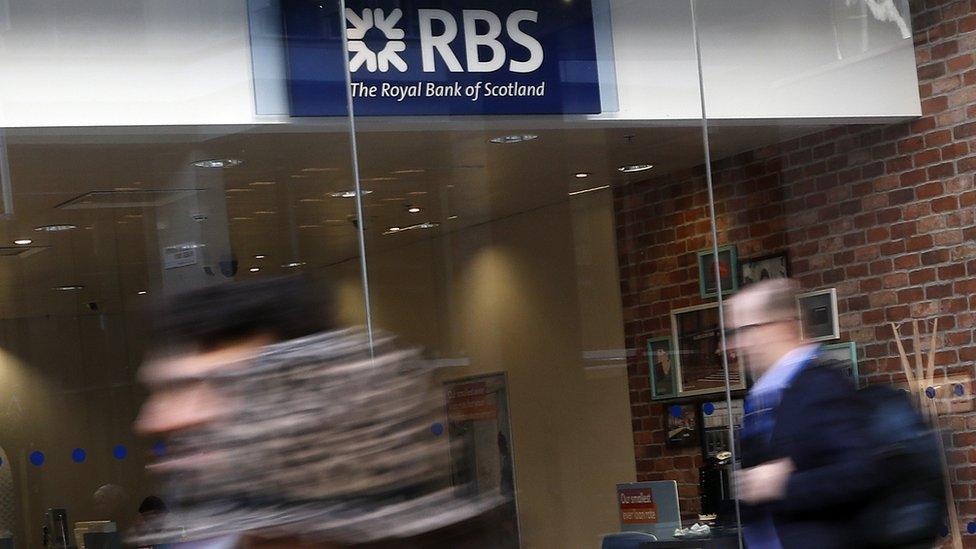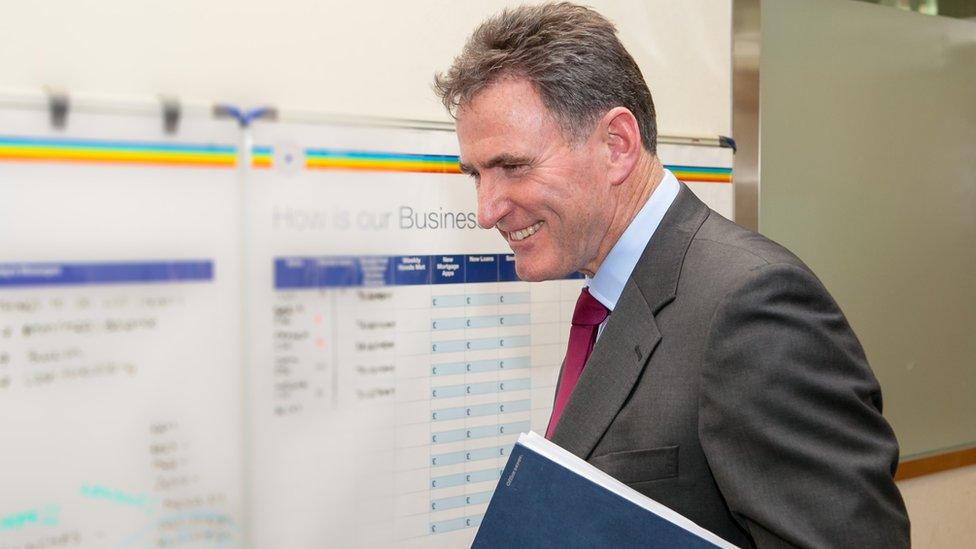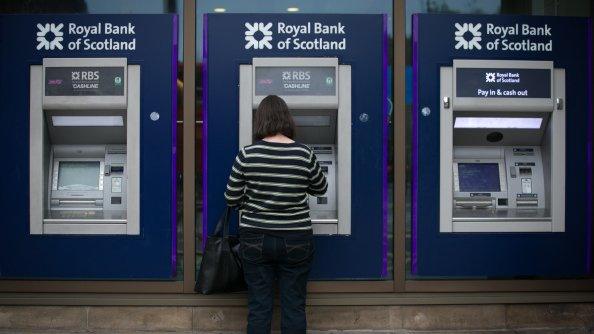RBS: reach for your earplugs
- Published

It's a familiar tale from RBS: everything's shipshape and cruising along nicely through choppy economic waters, except for the very nasty smell emanating from the bilges and that slight listing to starboard.
After eight years of this, any loss of less than a billion ceases to have much impact. But for one quarter, from July to September, an attributable loss of £469m should still hurt.
Yet huge losses are priced in. The share price has fallen less than 1%. At less than 200p, it's below half the level of two years ago, and even further below breakeven point for its main shareholder, the UK government.
Behind the latest figures are restructuring costs. They're going up. The restructure to spin off Williams & Glyn gets messier and more entangled. You'll recall, surely, that's the division RBS has been required to sell by the European Commission as a condition for being allowed all that government bail-out.
It is taking a further £500m from the full-year bottom line. And after all the effort to split it from the rest of RBS, there's a heavy hint that a buyer might want to take only part of it. That could be Clydesdale Bank, but RBS also hinted at others who might still be in the frame.
Whoever it is, the sale isn't going to to be complete before the end of 2017, which is the deadline set by the European Commission.
Will there be a penalty for that? Will the Commission concede that RBS has done enough to re-shape itself by other means, and that improved competition in the UK banking sector is a bit less of a priority (as the Treasury seems to think)?
And how will this play with the (coincidental) Brexit negotiations? Could RBS use that to play the long game, and get out of the divestment? No, nobody knows the answers to any of these questions.

RBS chief executive Ross McEwan has overseen an increase in restructuring costs
Then there's litigation and conduct, adding nearly £500m more third-quarter losses. By conduct, of course, they mean misconduct.
Setting out the results, you could sense Ross McEwan, the chief executive, tense as he used the careful legal wording ahead of the report into RBS's treatment of client companies in financial distress: not all customers treated as they should have been, but no evidence of companies being collapsed "artificially".
There's also the legal action over the £12bn rights issue in 2008, on which US litigants claim they were knowingly misled. An attempt to mediate a deal came to nothing in July. So that could still go to court next March, with a potential big pay-out to include in next year's accounts.
"Substantial additional charges and costs may be recognised in the coming quarters which would have an impact on the group's level of capital," warns the Royal.
Companies in trouble like to use the word "historic" about their "legacy" issues. So it is with RBS. But an interesting angle on its third-quarter results is that there is some noise that's more current.
Capital Resolution was due to carry a £1.5bn bill this year. That's now looking more like £2bn. RBS has had to account for impairments to its loan book from exposure to shipping companies, as well as the oil and gas sector, and mining. Those choppy waters, well beyond British shores, are having a new impact.
Ross McEwan warned at the start of 2016 that this year's accounts were going to be "noisy". He wasn't kidding. These figures need earplugs.
- Published28 October 2016
